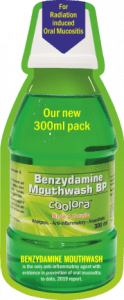Menu

Date: 15th Feb.,2017
In a survey conducted by Dental Council of India, it was found that 89.6% Indians aged between 35-44 years suffered from gum disease. You may be one of them if your daily dental routine is accompanied by a bit of blood in the sink. This bleeding is caused due to a bacterial infection that presents itself as swollen and bleeding gums.
The above-mentioned symptoms are early signs of gum disease. This article will help you understand what gum disease (periodontitis) is, what its symptoms are, and how you can prevent it.
Our mouths are home to many bacteria that form a sticky colorless film called plaque. When plaque is not cleaned, it hardens and forms tartar. The bacteria in plaque and tartar cause inflammation of gums or gingivitis, which is a mild form of gum disease.
In periodontitis, the plaque starts growing below the gum line. In response, the body’s immune system starts fighting the infection. Body’s defense mechanism and toxins released by the bacteria cause the bone and connective tissue to break down.
If you are suffering from gingivitis, then your gums will become red, swollen and bleed easily. Gingivitis, when left untreated, can progress to gum disease or periodontitis (means inflammation around the tooth).
While tartar can only be removed by professional cleaning, you can prevent new tartar growth and reduce gum disease by using a specialized toothpaste like XTAR.
Since gum disease can be painless, it is important to keep an eye out for its signs. Some of the most common symptoms are:
This is one of the first signs of gum disease. Periodontitis begins with inflammation along the gum line and indicates that your gums need attention. You can use products like Pyosan and Zingisol to help in relieving inflamed gums and stop the bleeding.
If your teeth have started looking longer, it is possible that the bacterial infection is destroying your gum tissue and supporting bone, creating a pocket. This phenomenon is called gingival recession or receding gums.
If you suddenly experience sensitivity in your teeth while eating or drinking something too cold or too hot, it could be due to gum disease. Since your gums recede due to periodontitis, the sensitive part of your teeth (dentin) is exposed. Dentin is connected to the nerve endings, which causes sharp pain when exposed to hot or cold food and beverages.
Bad breath is caused due to the toxins released by the mouth bacteria. Normally, bad breath can be taken care of by brushing, flossing and rinsing but if it persists despite maintaining oral hygiene, the cause could be gum disease.
If you have noticed that your smile looks different than before, this is because of gum disease. Your teeth are loosened due to attack on bones and gums, which causes the teeth to move and alter the way your teeth fit together.
However, these individual symptoms can also be signs of other oral ailments so make sure that you consult your dentist before starting any treatment on your own.
Treating gum disease is expensive, time-consuming and causes extensive damage to your oral health. Following are the risk factors and ways by which you can prevent periodontitis before it’s too late:
As explained above, mouth bacteria, plaque, and tartar are the primary causes of gum disease. By brushing, flossing and rinsing every day, you can keep the mouth bacteria at bay and avoid oral health problems.
Feel free to have a look at our mouthwashes specialized for gum care – Hexidine and Hexidine EP. These are very effective in treatment and prevention of gingivitis and periodontitis. You should also visit the dentist twice a year as he or she can examine your oral health and do a professional dental cleaning.
Smokers and tobacco users are at a higher risk of getting gum disease. Moreover, if you already have periodontal disease, smoking can make it worse. Tobacco use causes dry mouth, which promotes plaque and tartar buildup. By quitting smoking and chewing tobacco you can keep periodontal disease under control.
Some people are at a higher risk of suffering from gum disease. So, if you have a history of periodontitis in your family, you need to take extra care. With good oral hygiene, even those prone to gum disease can avoid it.
Starch and sugar rich foods increase plaque activity in your mouth. By opting for a healthy diet, you can reduce plaque growth. Vitamin C rich diet is especially necessary to prevent gum diseases as its deficiency (scurvy) can cause bleeding gums.
Stress is known to weaken your body’s immune system. A vulnerable immune system makes it even harder to treat gum disease. You can try meditation or engage in a hobby to reduce your stress levels.
Make sure that you contact your dentist as soon as you see any of the warning signs of gum disease. The earlier gum disease is caught, the easier it is to treat it.
Sources:


| PRODUCTS | QTY | PRICE | VALUE in INR |
|---|
| PRODUCTS | QTY | PRICE | VALUE in INR |
|---|
One thought on “What Causes Gum Disease and How to Prevent It?”
Thankyou for sharing such a nice and informative blog and your knowledge with us. mproper oral hygiene that allows bacteria in plaque and calculus to remain on the teeth and infect the gums is the primary cause of gum disease.
For More: http://www.dentalexcellencedelhi.co.in